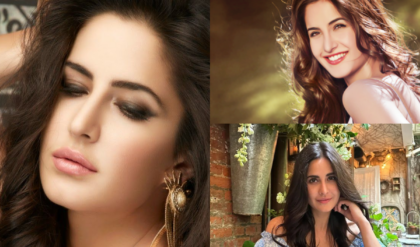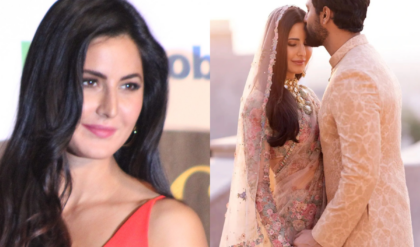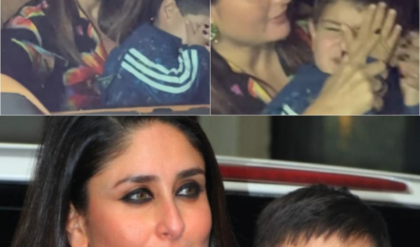Kangana Ranaut is one of the most contentious figures in Bollywood, known for her remarkable acting talent and her unapologetic stance on various social and political issues. Since her entry into the film industry in 2006, Kangana’s journey has been marked by both phenomenal success and significant controversies. Her evolution from a promising newcomer to a polarizing figure highlights the complexities of fame, the challenges of navigating the film industry, and the impact of personal choices in shaping public perception.
Kangana made her acting debut in 2006 with the film “Gangster,” directed by Anurag Basu. Her performance garnered widespread acclaim, and she quickly became recognized as a talented actress with immense potential. Following her debut, she starred in several successful films, including “Fashion” (2008) and “Tanu Weds Manu” (2011). In “Fashion,” she portrayed a struggling model, earning her the National Film Award for Best Supporting Actress. This recognition not only solidified her position in the industry but also showcased her ability to tackle complex roles. As she gained popularity, Kangana became known for her versatility and dedication to her craft, making her a sought-after actress in Bollywood.
However, as Kangana’s star continued to rise, so did the scrutiny surrounding her personal life and professional choices. Her outspoken nature began to define her public persona, as she frequently shared her opinions on various topics, including gender equality, mental health, and the challenges faced by women in the film industry. While her candidness resonated with many, it also drew criticism from several quarters. Her willingness to speak out about her experiences, including allegations of nepotism and the struggles she faced as an outsider in the industry, positioned her as a controversial figure.
One of the most notable controversies in Kangana’s career occurred in 2016 when she became embroiled in a public feud with actor Hrithik Roshan. This highly publicized dispute began with allegations of an affair during the filming of “Krrish 3” and escalated into a bitter legal battle involving accusations of harassment and defamation. The media frenzy surrounding the conflict not only overshadowed Kangana’s professional achievements but also painted her as a divisive figure in Bollywood. Some supported her for standing up for herself, while others criticized her for airing personal grievances in such a public manner.
Despite the controversies, Kangana experienced significant success with the release of “Queen” in 2014. The film, which centered on a young woman’s journey of self-discovery after her fiancé calls off their wedding, became a cultural phenomenon. Kangana’s performance was widely lauded, earning her another National Film Award and establishing her as a leading actress capable of carrying a film. The success of “Queen” marked a turning point in her career, allowing her to explore more diverse and challenging roles. However, the acclaim also intensified public scrutiny of her personal life and statements.
As her career progressed, Kangana continued to make headlines for her unfiltered comments on various social and political issues. Her outspoken nature led her to voice strong opinions on Bollywood’s perceived elitism and the prevalence of nepotism in the industry. In 2020, following the tragic death of actor Sushant Singh Rajput, Kangana became one of the most vocal critics of the Bollywood establishment, alleging that systemic issues within the industry contributed to his death. Her statements sparked a nationwide debate about mental health, nepotism, and the pressures faced by actors, further polarizing public opinion regarding her character.
The fallout from Sushant’s death led to heightened tensions between Kangana and several prominent figures in the industry, including Karan Johar and Alia Bhatt. Kangana’s willingness to confront these established figures garnered her a significant following, especially among those who felt marginalized by the industry’s power dynamics. However, her statements also attracted backlash, with many accusing her of exploiting the tragedy for personal gain. This complex interplay of support and criticism illustrated the fine line Kangana walked as she navigated her career and public persona.
In 2020, Kangana also made her directorial debut with “Manikarnika: The Queen of Jhansi,” a historical drama that showcased her ambition and dedication to portraying strong female characters. The film was a box office success and highlighted her ability to take on multifaceted roles, both in front of and behind the camera. Kangana’s exploration of historical narratives resonated with audiences, allowing her to carve a distinct niche in the industry. However, her journey as a filmmaker was not without challenges, as she faced criticism for her approach and for the controversies that continued to surround her.
Kangana’s political engagement further complicated her public image. In recent years, she has become increasingly vocal about her views on nationalism and social issues. Her alignment with right-wing ideologies and her outspoken criticism of the Bollywood elite led to her being hailed as a hero by some and vilified by others. This duality encapsulates the complexities of her character; she is both an artist and a provocateur, unafraid to challenge the status quo
Watch video:
News
घर पर बर्तनों में केसर उगाना
केसर, जिसे वैज्ञानिक रूप से क्रोकस सैटिवस के नाम से जाना जाता है , केसर क्रोकस फूल के कलंक से प्राप्त एक अत्यधिक मूल्यवान मसाला है। यह अपने चमकीले रंग, अनोखे स्वाद और कई स्वास्थ्य लाभों के लिए प्रसिद्ध है। जबकि इसे…
घर पर बीज से बादाम का पेड़ कैसे उगाएं
घर पर बीज से बादाम का पेड़ उगाना एक फायदेमंद प्रक्रिया हो सकती है जो आपको कई सालों बाद एक सुंदर और फलदार पेड़ प्रदान करेगी। इसे कैसे करें, इस पर एक सामान्य गाइड यहाँ दी गई है: चरण 1:…
टमाटर को खीरे से नफ़रत: साथी रोपण के रहस्यों का खुलासा
बगीचे के गतिशील पारिस्थितिकी तंत्र में, सभी पौधे संगत नहीं होते। साथी पौधों की सदियों पुरानी प्रथा बागवानों के लिए आवश्यक जानकारी प्रदान करती है, उन्हें सिखाती है कि कैसे कुछ पौधों का संयोजन एक दूसरे के विकास में सहायता…
टमाटर की भरपूर फसल उगाना: सफलता के लिए 6 गुप्त सुझाव
टमाटर उगाना सिर्फ़ बागवानी की गतिविधि से कहीं ज़्यादा है; यह कई लोगों के लिए जुनून है। रसीले, पके हुए टमाटरों की भरपूर फ़सल की चाहत बागवानों को बेहतरीन तकनीक और रहस्यों की तलाश करने के लिए प्रेरित करती है।…
द जेंटल जायंट्स: पारंपरिक और आधुनिक कल्याण प्रथाओं में मालवा नेग्लेक्टा और मालवा सिल्वेस्ट्रिस
वनस्पति जगत के विशाल ताने-बाने में, कुछ ही पौधे मानव इतिहास और स्वास्थ्य प्रथाओं में खुद को इतनी सहजता से शामिल कर पाए हैं, जैसे कि मालवा नेग्लेक्टा और मालवा सिल्वेस्ट्रिस, जिन्हें आमतौर पर क्रमशः कॉमन मैलो और हाई मैलो…
भरपूर फसल के लिए टमाटर उगाने के क्रांतिकारी तरीके
टमाटर, बगीचे का गहना, खाने में जितने स्वादिष्ट होते हैं, उगाने में उतने ही फायदेमंद भी होते हैं। हालाँकि, इन स्वादिष्ट फलों को पूरी तरह से उगाने के लिए सिर्फ़ हरियाली की ज़रूरत नहीं होती। इसके लिए रणनीतिक सूझ-बूझ और…
End of content
No more pages to load











